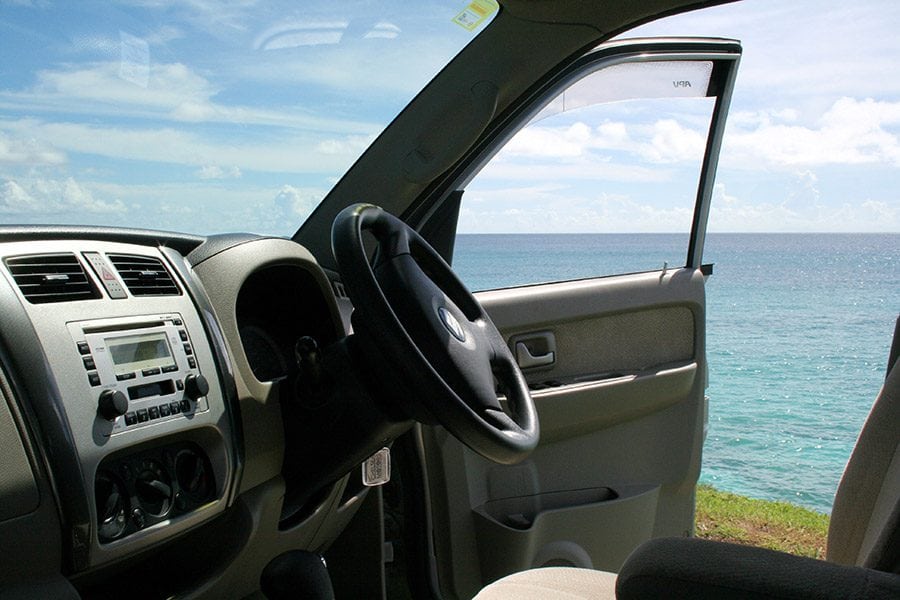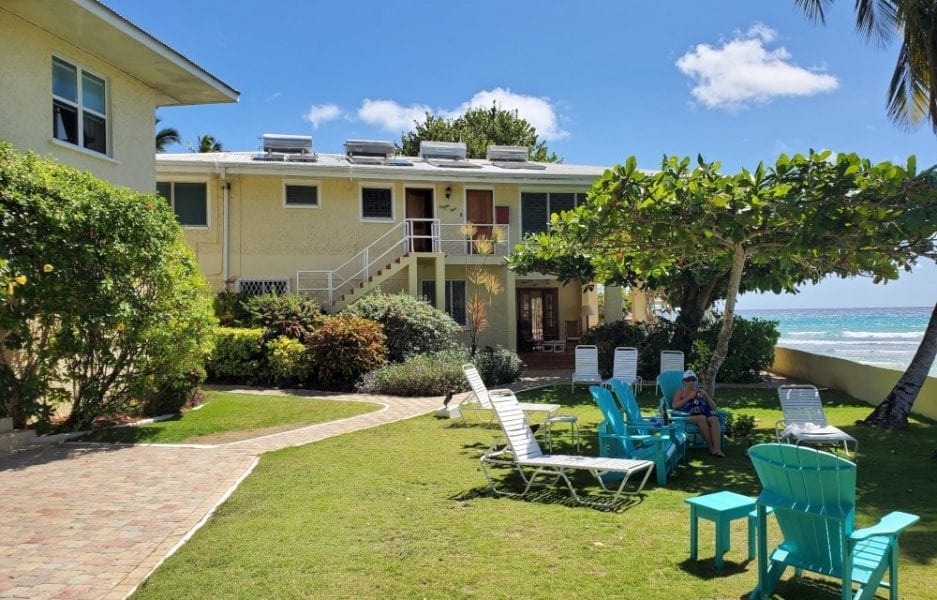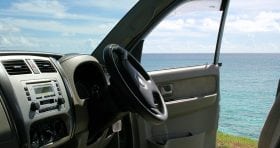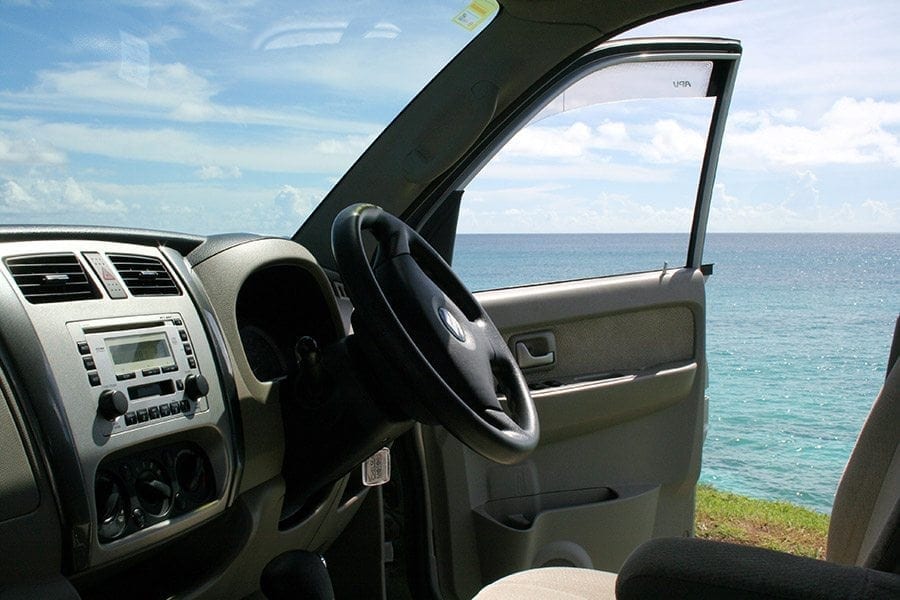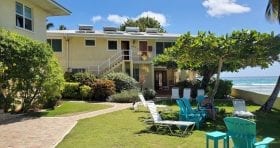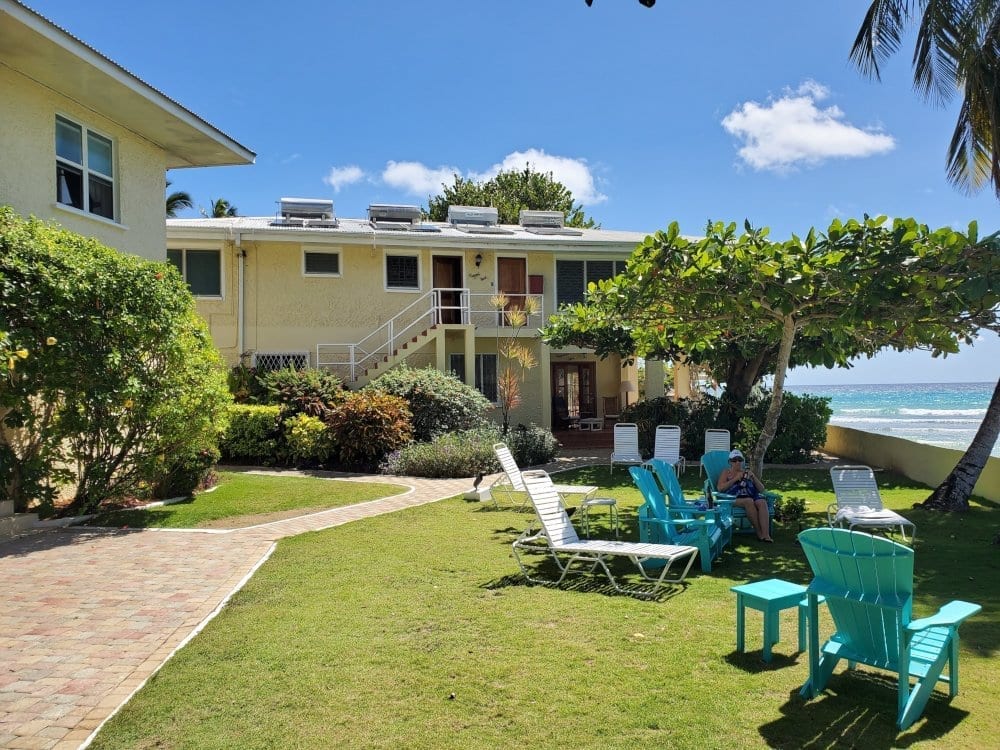Want some quick facts about the island of Barbados? Let us give you a brief rundown of insider information and show you what makes this island unique.
Facts about Barbados – Did you know?
— The National dish of Barbados is Cou-Cou and Flying Fish.
With flying fish as one of the national symbols of the island, it’s no surprise that Barbados is known as the land of the flying fish and that it is one-half of the country’s national dish.
It is traditionally served on a Friday and accompanied by cou-cou.
Coucou is a dish made with yellow cornmeal (similar to polenta) and okras in much the same way it has been made in Africa for centuries. The flying fish is prepared and stewed in an aromatic sauce of tomato, onion, chives, thyme, fresh pepper, garlic, and other local herbs.
If you’re yet to sample this national treasure, it is a must-try while you are on the island, so pop it on your to-do list today!
Note: Cou-cou can also be made with breadfruit and green bananas and served with salt fish or beef stew. A selection of tasty Barbados recipes.
— It’s good luck to have a mongoose scurry across the road in front of you.
You’re bound to see a Barbados mongoose scurry across your path sometime during your stay on the island.
The Mongoose is a slender, furry creature with a brown/grey coat. It has a long body and short legs comparable to a Weasel or a Stoat. You’ll find them more so in country areas where there are more ‘bushy’ kinds of places; however, they can be found all over the island.
The Mongoose was introduced to Barbados from India as part of a plan to combat the increasing rat population, posing a substantial threat to the sugar cane industry (at the time, Barbados’ economic lifeline). However, this plan hit an unfortunate snag as the rat is a nocturnal animal, and the Mongoose scurries along by day!
— Chattel houses are wooden dwellings strongly associated with Barbados’ heritage.
These small, entirely wooden dwellings are strongly associated with Barbados’ heritage.
The word ‘chattel’ means movable property, so it’s only logical that a chattel house is a ‘moveable house.’
Because in earlier times, homeowners were not necessarily the landowners, Barbadian chattel houses were constructed on blocks, so if the owner had to move to another area, he would take his whole place with him.
Over time, a distinct and increasingly ornate design for Barbadian chattel houses evolved, making them uniquely attractive and traditionally Bajan in style.
— Flying fish jump out of the water and can glide for 30 to 50 meters!
It is said flying fish glide more than they ‘fly.’ Flying fish have also been known to remain in ‘flight’ for up to 45 seconds and can travel at speeds of more than 70 km per hour (43 miles per hour).
This exciting fish is a Barbadian national symbol and a staple part of Bajan diets island-wide.
— November 30th marks Barbados’ Independence from British rule.
Historically, Barbados was an English/British colony dating back from when the first permanent settlers arrived in 1627 and uniquely continuing right up until Barbados’ official Independence on November 30th, 1966.
Today, Barbados remains part of the Commonwealth, with Queen Elizabeth II as our head of state.
Independence celebrations are essential on the island, and it has become a tradition that all roundabouts are decorated in blue, yellow, and black, the colors of the Barbadian national flag. These roundabouts light up the streets at night and are a beautiful symbol of pride and Independence for November.
On Independence Day, there is a parade through the streets and various celebrations island-wide.
— There were initially 400 standpipes installed across the island.
Upon the introduction of piped water in Barbados in 1861, 400 standpipes (or ‘standard pipes’) were installed.
Traditionally, the standpipe was a focal point in Barbadian village life.
In populated areas, the Government installed a standpipe where people could collect free, clean running water for their household needs. Thus, the standpipe became a busy center of all social activity – from gossip to courtship, to political discussion, to confrontation.
With the introduction of running water to virtually every Barbadian home, many of the original standpipes were turned off by the Barbados Water Authority and are no longer in use. However, there are still enough in operation island-wide for you to stop off for a quick drink while out touring the island.
— Barbados was initially named Los Barbados, meaning ‘the bearded ones.’
The magnificent bearded fig trees indigenous to the island were once in abundance. They have long-hanging, aerial roots, and to Pedro Campos, the Portuguese explorer who sighted the island in 1536, these roots made the trees look like they had beards, hence his name for the island, ‘Los Barbados.’ The word ‘beard’ is called ‘Barbados’ in Portuguese.
— The Barbados national flower is officially the red Pride of Barbados.
The official name for Barbados’ national flower is Caesalpinia pulcherrima. These flowers are generally red, yellow, or orange and bloom all year across the island. You’ll find they add a beautiful splash of color wherever they grow.
— Mount Gay Barbados Rum is over 300 years old.
Mount Gay Rum was first produced in 1703. It is one of the world’s oldest and most famous brands of fine rum.
It is sold in over 66 countries; the US is the number one market.
Interestingly, Mount Gay Rum Distilleries sponsors over 110 sailing regattas worldwide. The famous red Mount Gay Regatta hats are considered prized possessions, and people have been known to offer hundreds of dollars to obtain one.
You can see these hats on display at the Mount Gay Rum Refinery in Barbados; however, as the staff will tell you, these are not for sale, no matter how much you are willing to offer.
— The world’s greatest cricketer was born in Barbados.
Arguably the world’s greatest cricketer, Sir Garfield St. Auburn Sobers, was born in 1936 in the parish of St. Michael in Barbados. He is considered one of, if not the, most excellent cricket all-rounder ever.


